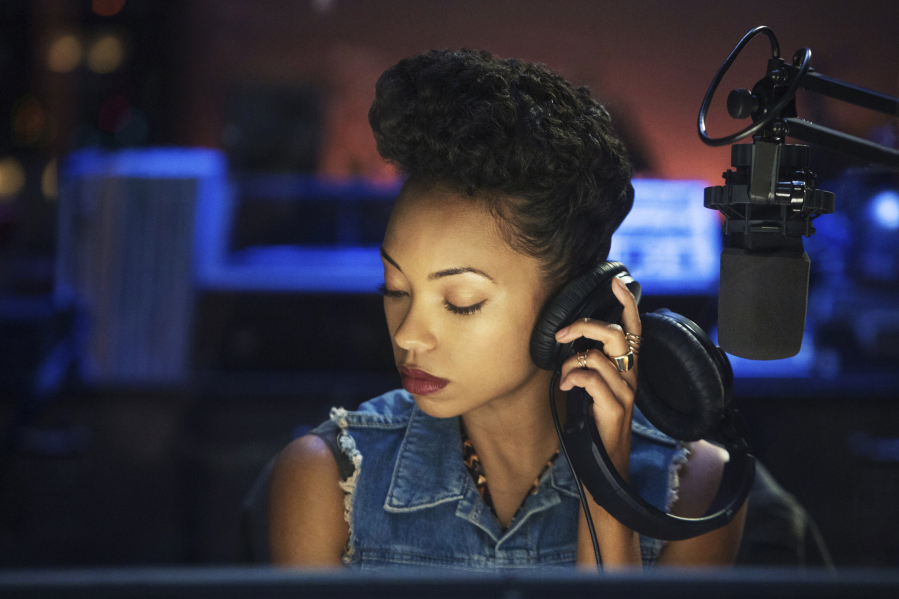“Dear White People” was met with critical acclaim when it hit theaters in 2014. Director and writer Justin Simien’s satire, which followed a group of black students at a predominantly white Ivy League university, rejected the notion that we live in a post-racial society.
Three years later, the idea of a post-racial society isn’t one that needs to be disproved. We’ve gotten the message — through the incessant churn of social media, our 24-hour news cycle and the efforts of activists calling on a generation to wake up (or in more current parlance, “stay woke”).
Enter “Dear White People,” the 10-episode Netflix series, which begins streaming Friday and elevates its source material into a deeply poignant exploration of where we are now. Like its predecessor, which first arrived in the form of a concept trailer back in 2012, the series is a timely and hilarious sendup. Simien adapted it for television and is the writer-director behind several episodes. But he taps several other directors — including “Moonlight’s” Barry Jenkins — to helm installments, all of which feature characters subtly breaking the fourth wall, usually with pointed stares.
The show’s tagline, “Bet you think this show is about you,” is a pithy nod to anyone who (still!) thinks the provocative title is racist. (If you’re in that camp, it’s safe to say this isn’t the show for you.)
“Dear White People” returns to fictional Winchester University, where a blackface-themed party hosted by the white editors of the campus humor magazine, Pastiche, has sent long-simmering racial tensions to new heights. Sam (Logan Browning), a film major who hosts the popular but controversial “Dear White People” radio show, takes to the airwaves to address her fellow students.
“Dear white people,” she says, scornfully. “Here’s a list of acceptable Halloween costumes: a pirate, slutty nurse, any of our first 43 presidents. Top of the list of unacceptable costumes? Me.”
The party was the tipping point in the film, but in the series, it’s only the beginning. The movie (which isn’t a prerequisite for viewing the show) was told largely from Sam’s perspective. But the series smartly expands its focus to follow the aftermath of the party — and the events that led to it — through the eyes of five other Winchester students, with Giancarlo Esposito chiming in intermittently as our irreverent narrator.
Simien’s well-paced adaptation adds depth to his characters and the ways their stories intersect. There’s Lionel (DeRon Horton), a shy, nerdy sophomore who not-so-secretly pines for the affections of his straight, playboy roommate Troy (Brandon Bell, reprising his role from the film). Troy struggles to live up to the expectations of his demanding father, a Winchester dean, who doesn’t agree with Sam’s approach of calling out the white privilege of her classmates. “Her rhetoric makes this campus look like a powder keg of racial unrest — like a state school,” he says.
Counterpoint
Coco (Antoinette Robertson), a driven, aspiring lawyer, also disagrees with Sam’s outspoken delivery. Their differences — and the backstory behind them — are better explained in the series than the film and offer a counterpoint to Sam’s belief in fighting the system.
Sam becomes the center of gossip when an Instagram post reveals that she’s been hooking up with Gabe (John Patrick Amedori), a white graduate student. Her BFF Joelle (Ashley Blaine Featherson) is conflicted about the interracial relationship despite the fact that Sam is half-white.
Featherson, a Washington native who had a minor role in the film version, is a scene-stealer. When Sam reminds Joelle that she’s biracial, Joelle shoots back: “Yeah, but you’re not Rashida Jones biracial, you’re Tracee Ellis Ross biracial. People think of you as black!”
Sam’s secret relationship also causes issues with Reggie (Marque Richardson), who shares her penchant for activism and has had a crush on her since their freshman year. Richardson played Reggie in the film, but he gets more screen time here and the show is better for it. At one point, Reggie gets into a fight with one of his white friends who casually drops the n-word while singing along to a song at a party. The skirmish escalates quickly and Reggie faces a terrifying situation that goes far beyond microaggressions and cultural appropriation.
The scene accounts for one of the show’s heavier moments. But “Dear White People” is so well-punctuated with humor that, for viewers, an ugly cry can easily turn into a belly laugh. One recurring joke revolves around “Defamation,” a thinly veiled “Scandal” spoof that black Winchester students gather to watch on a weekly basis.
Simien’s film coincided with a number of campaigns by black students at predominantly white universities. Through groups such as I, Too, Am Harvard and Being Black at Georgetown, black students shared stories of other classmates accusing them of being unqualified for admission or being asked to show identification while walking to class.
But our collective conversations about race have expanded in the age of the Black Lives Matter movement and increasing attention is paid to the deaths of unarmed black men and women.
“Dear White People” doesn’t just acknowledge this reality, but digs deeper. What does it feel like to regularly have to process such tragedy? To know that it could have been you? At a certain point, protest — taking action — becomes necessary. But it can also be exhausting, even soul-crushing. The show explores this, too.
Joelle, whose wit isn’t limited to hilarious one-liners, puts it well: “Sometimes being carefree and black is an act of revolution.”



